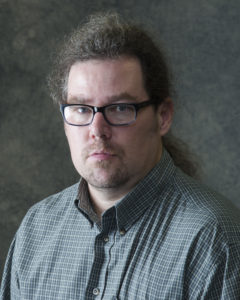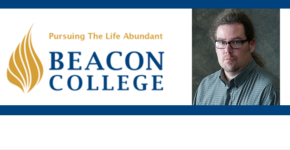 Are The Beats still relevant today?
Are The Beats still relevant today?
William Nesbitt, English professor at Beacon College, explores this literary movement and what we’re still learning from them today.
Dr. William C. Nesbitt is an English professor at Beacon College in Leesburg, Florida, where he heads up Beacon’s Humanities Department. He received his Ph.D. in English from Florida State University, where he focused on American Literature after 1875. His dissertation: Bone Machines: Hotrods, Hypertextuality, and Industrialism. Nesbitt earned his M.A. in English from Valdosta State University, and his B.A. in English from Thomas University.
The Beats
The work of the Beat generation challenges assumptions, challenges power, questions the way that we see the things we’re supposed to do and not do. If you look back at previous literary groups – the Romantics, the Transcendentalists, the Decadents – they were all questioning the assumptions of their respective times.
Most people generally associate the Beats with the 1950s, ‘60s and ‘70s, but they are still relevant and active even now. Some of the originals, like Diane di Prima, are still with us, still writing and working.
A lot of people don’t know how highly educated the Beats are. Jack Kerouac and Allen Ginsberg attended Columbia. Ginsberg also attended Berkeley, William Burroughs was at Harvard. Folks today are giving the Beats more scholarly attention and critical validity. Many of the Beats are now part of well-known and respected anthologies, compared to decades ago when the anthologies purposely excluded them.
Now, you can even find classes on the Beats, who are one of the last real movements in American literature. They wrote about still-relevant issues such as political topics, gender equality, rights for gays, the environment, censorship, compassion for the world. It was very much about pushing the boundaries of writing and society, and seeing what’s beyond those boundaries.
Part of the ethos of the Beat Generation is keeping the writing original and not tinkering with it too much. If you correct the writing or syntax, you change the message. Just let your impulses, your spontaneity, your first thoughts come through.
Still, we now know that the early published works of the Beats were edited more than people were led to believe. Kerouac supposedly wrote On the Road in weeks. The first draft was written in just three weeks, but it was based on writing that he had been keeping for a long time, and the final version was reworked over years. But, Kerouac and Ginsberg’s later works weren’t as edited or as revised. Their editors were more likely to trust them and to trust themselves. And that is one of the most important messages to come from the Beat Generation: question the structures and ideas around you, but always, always believe in yourself.
